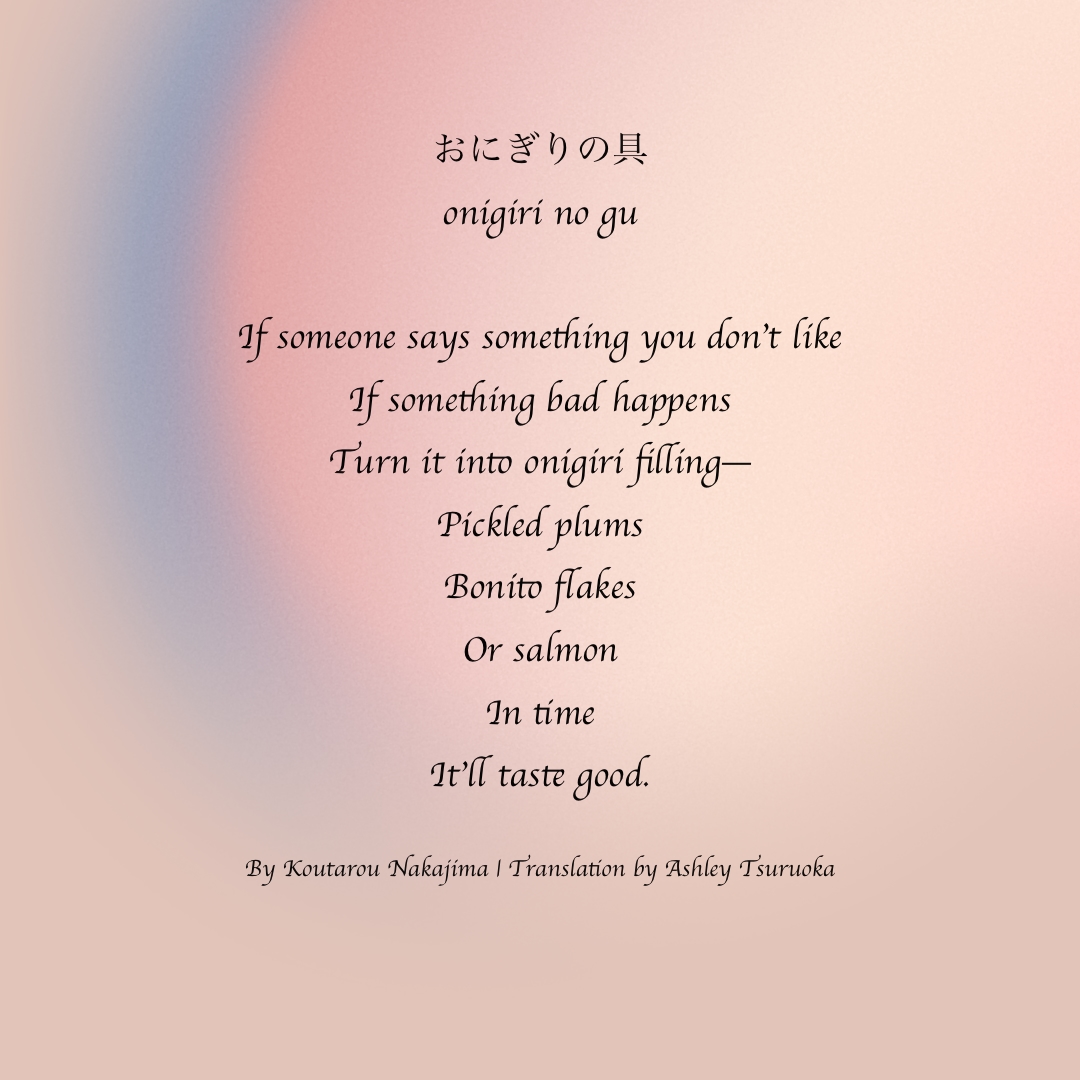[ad_1]
Art is transformative, changing the lives of people all around the world. It nurtures self-expression, builds communication skills and fuels learning through imagination. In Japan, there’s a growing number of organizations dedicated to making the arts more accessible. From poetry exhibitions to puppet theater productions, these projects amplify the voices of artists living with disabilities and help foster a more inclusive society.
Poetry curated by NHK
Since 1994, the NHK Heart Exhibition has been showcasing poems authored by poets — young and old — with disabilities. In recent years, the exhibition has garnered more than 3,000 entries annually from across Japan. From this astounding collection, 50 poems are selected for publication and become part of a traveling exhibition displayed in venues throughout the country.
Koutarou Nakajima, a 12-year-old poet growing up with developmental challenges, creates a flavorful metaphor in his poem “おにぎりの具,” or “Onigiri Filling,” featured at the 26th Heart Exhibition in 2022.

“Onigiri no Gu,” poem by Koutarou Nakajima. Translation by Ashley Tsuruoka Photo: Japan Today
In this poem, Nakajima expresses his frustrations as onigiri (rice ball) fillings. His words remind us that, with a little positivity, creativity and patience, we can turn unpleasant ingredients into something delicious. When life gives you picked plums, bonito flakes or salmon, make onigiri. Read the original poem in Japanese on the NHK Heart Exhibition website.
This year, the exhibition embraced submissions from family members and caregivers, as well as poems written in braille. Visitors can listen to recorded versions of each poem through smartphones or special devices, catering to those with visual impairments and those who appreciate spoken word. The poems have been narrated by celebrities, including child actress Nako Yabuki and vocalist Wataru Hatano.
Although poetry is often perceived as an inaccessible art form, the pieces featured at NHK Heart Exhibition illustrate how powerful ideas and emotions can be captured in simple ways. As a guest, you’ll have the opportunity to write your own poem or pick a card with your favorite verse and bring it home. In these ways, NHK provides a platform for those with and without disabilities to communicate, deepen understanding and form connections through poetry. The 2023 exhibition is currently traveling to different regions. Find one near you on the NHK Heart Exhibition website.
Paintings curated by Heralbony
Heralbony is a brand dedicated to supporting visual artists with disabilities and sharing their creations with the world. Founded by Takaya and Fumito Matsuda in 2018, Heralbony has been challenging the narrative surrounding disability and art. They oppose the notion that art created by people with disabilities should be treated or valued differently; all artists should be evaluated based on talent and creativity, not pity. In collaboration with museums, schools and other businesses like JR East and Walt Disney Japan, Heralbony sells and exhibits the works of exceptional artists.
The Tekko Building proudly holds a permanent exhibition by select artists, including Hiroko Kawabe, a visual artist who explores ceramics, paintings and multimedia art. In her piece titled “楽器,” or “Musical Instruments,” Kawabe brings to life a lively crowd, depicting a variety of expressions, postures and musical instruments. Some figures appear to be walking by, enjoying the music, while others, resembling pop and rock icons, are singing and playing guitar or drums. This piece blends her favorite colors, with shades of red and pops of blue. “Musical Instruments” is currently on view at the basement first floor (B1F) passageway of the Tekko Building in Tokyo.
Artists at Heralbony are given the freedom to create whatever they want, whenever they want. One artist may spend months or years on a piece of art, while another may create multiple pieces in one sitting. An artist may draw intricate patterns while another paints washes of color. Exploring tactile or sensory materials can also add dimension to an artist’s work.
The Matsuda brothers take the time to meet and discuss with artists and their families, signing contracts and ensuring profits flow back to the creators. Bags, clothing, tableware and other items printed with bold colors and motifs can be purchased on the Heralbony website. Around Japan, you might unknowingly encounter their art on vending machines, gift boxes and more.
Puppet shows curated by Soup
Soup, stylized as SOUP, is the charming nickname for the Arts Activities Support Center for Persons with Disabilities at Miyagi. Active since 2011 and officially established in 2014 by Able Art Japan, Soup has been supporting artistic and cultural activities for children and adults. Everyone, regardless of age or ability, is invited to experience the joy of performing arts.
Soup regularly hosts workshops, exhibitions and performances that prove “disability” does not equal “inability.” Participants learn to express themselves through music, dance, theater and other forms of art. “Atelier Creation” and “Let’s All Create a Puppet Show in The Plaza!” are opportunities to experiment with unfamiliar materials and connect with like-minded peers. Facilitators assist the group in discussion, finding inspiration and appreciating one another’s art.
At Soup, anyone can participate in ningyo geki (puppet shows) in various ways. Participants can craft puppets or stage props, narrate a story, play a musical instrument, puppeteer or simply enjoy the performance. Professionals skilled in diverse artistic disciplines, such as embroidery, wood carving and percussion, help organize events at the Able Art Japan Free Space in Sendai.
In addition to Soup, Able Art Japan has created many safe spaces for artistic exploration, including Able Art University and A/A Gallery. These spaces were designed to nurture individuality as well as promote the works of artists living with disabilities. If you are unable to see these artworks or performances in person, enjoy art published online at the Soup website.
In Japan, these organizations are part of the growing effort to provide resources for people with disabilities. The community of artists living with disabilities has a lot to say and a will to say it, one poem, painting and puppet show at a time.
© Japan Today
[ad_2]
Source link

